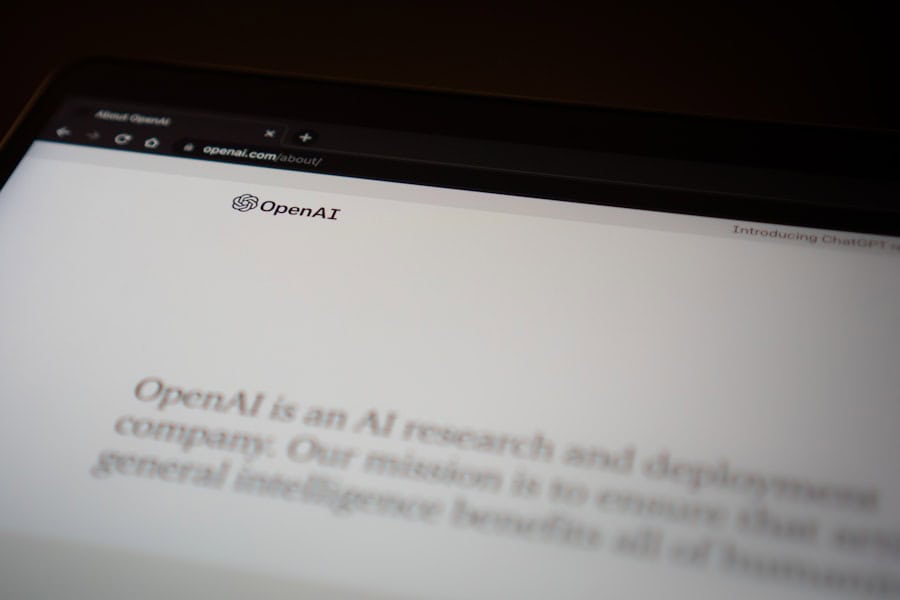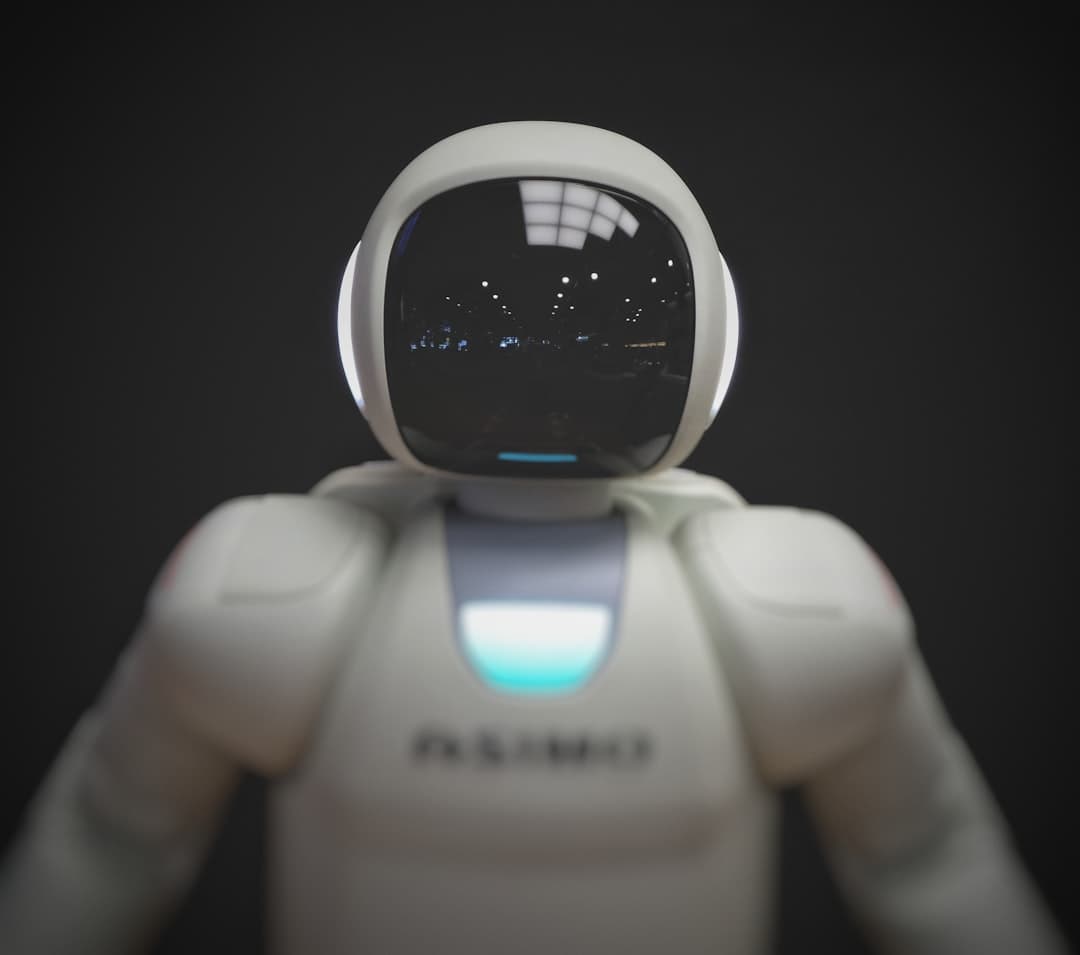Artificial Intelligence (AI) is a rapidly evolving field that involves the development of computer systems capable of performing tasks that typically require human intelligence. These tasks include learning, reasoning, problem-solving, perception, and language understanding. AI has the potential to revolutionize various industries by automating processes, analyzing data at scale, and making predictions and decisions with minimal human intervention.
The development of AI is driven by advancements in machine learning, deep learning, natural language processing, and robotics, among other technologies. As AI continues to advance, it is increasingly being integrated into various sectors, including healthcare, manufacturing, finance, transportation, and retail, to improve efficiency, accuracy, and decision-making. AI has the potential to transform industries by enabling machines to perform complex tasks that were once only possible for humans.
This has led to the development of AI-powered systems that can analyze large volumes of data to identify patterns and make predictions, automate repetitive tasks, and even interact with humans through natural language processing. As a result, AI is being increasingly adopted across different sectors to enhance productivity, reduce costs, and improve the overall quality of products and services. However, the widespread adoption of AI also raises ethical and societal concerns, such as job displacement, privacy issues, and biases in decision-making.
As AI continues to advance, it is crucial for organizations and policymakers to address these challenges and ensure that AI is developed and deployed in a responsible and ethical manner.
Key Takeaways
- AI is a rapidly advancing technology that has the potential to revolutionize various industries.
- In healthcare, AI is improving diagnostics and treatment by analyzing large amounts of data to identify patterns and make accurate predictions.
- AI is streamlining production and quality control in manufacturing by automating processes and detecting defects more efficiently.
- In finance, AI is enhancing risk management and fraud detection by analyzing complex data sets and identifying anomalies.
- In transportation, AI is optimizing logistics and enabling the development of autonomous vehicles for safer and more efficient transportation.
AI in Healthcare: Improving Diagnostics and Treatment
Enhancing Diagnostics and Treatment
AI-powered systems can analyze medical images such as X-rays, MRIs, and CT scans to detect abnormalities and assist radiologists in making more accurate diagnoses. Furthermore, AI can analyze large volumes of patient data to identify patterns and predict disease progression, which can help healthcare providers personalize treatment plans and improve patient outcomes.
Personalized Medicine and Operational Efficiency
AI is being used to develop precision medicine by analyzing genetic information to tailor treatments to individual patients based on their unique genetic makeup. In addition to diagnostics and treatment, AI is also being used to improve operational efficiency in healthcare facilities. For example, AI-powered systems can optimize hospital workflows by predicting patient admission rates, automatating administrative tasks, and improving resource allocation.
Enhancing Patient Experience and Addressing Concerns
AI-enabled chatbots are being used to provide personalized patient support and assistance, reducing the burden on healthcare staff and improving the overall patient experience. While AI has the potential to significantly improve healthcare outcomes, it is important to address concerns related to data privacy, security, and the ethical use of AI in healthcare.
AI in Manufacturing: Streamlining Production and Quality Control

AI is transforming the manufacturing industry by streamlining production processes and enhancing quality control through automation and predictive maintenance. AI-powered systems can analyze production data in real-time to optimize manufacturing processes, reduce downtime, and minimize waste. Furthermore, AI-enabled robots and cobots (collaborative robots) are being used to automate repetitive tasks such as assembly, packaging, and material handling, which can improve efficiency and reduce the risk of human error.
Additionally, AI is being used for predictive maintenance by analyzing equipment sensor data to detect potential failures before they occur, reducing unplanned downtime and maintenance costs. In addition to production processes, AI is also being used to improve quality control in manufacturing. AI-powered systems can analyze product defects and anomalies in real-time using computer vision and machine learning algorithms, ensuring that only high-quality products reach the market.
Furthermore, AI is being used to optimize supply chain management by predicting demand, identifying potential disruptions, and improving inventory management. While AI has the potential to revolutionize manufacturing by improving efficiency and quality, it is important for organizations to address concerns related to job displacement and the ethical use of AI in the workplace.
AI in Finance: Enhancing Risk Management and Fraud Detection
| Metrics | 2018 | 2019 | 2020 |
|---|---|---|---|
| Number of AI applications in risk management | 50 | 75 | 100 |
| Percentage of fraud detection accuracy | 90% | 92% | 95% |
| Cost reduction in risk management due to AI | 10 million | 15 million | 20 million |
AI is reshaping the finance industry by enhancing risk management and fraud detection through the analysis of financial data and customer behavior. AI-powered systems can analyze large volumes of financial data to identify patterns and trends that may indicate potential risks or opportunities. Furthermore, AI is being used for credit scoring by analyzing customer data to assess creditworthiness and personalize lending decisions.
Additionally, AI is being used for algorithmic trading by analyzing market data in real-time to make automated trading decisions based on predefined criteria. In addition to risk management, AI is also being used to improve fraud detection in the finance industry. AI-powered systems can analyze customer transactions and behavior patterns to detect anomalies that may indicate fraudulent activity.
Furthermore, AI is being used for anti-money laundering (AML) compliance by analyzing large volumes of transaction data to identify potential money laundering activities. Additionally, AI-enabled chatbots are being used to provide personalized customer support and assistance, reducing the burden on finance staff and improving the overall customer experience. While AI has the potential to significantly improve risk management and fraud detection in the finance industry, it is important for organizations to address concerns related to data privacy, security, and the ethical use of AI in finance.
AI in Transportation: Optimizing Logistics and Autonomous Vehicles
AI is revolutionizing the transportation industry by optimizing logistics and enabling the development of autonomous vehicles. AI-powered systems can analyze large volumes of transportation data to optimize routes, reduce fuel consumption, and minimize delivery times. Furthermore, AI is being used for predictive maintenance by analyzing vehicle sensor data to detect potential failures before they occur, reducing unplanned downtime and maintenance costs.
Additionally, AI-enabled drones are being used for last-mile delivery in urban areas, improving delivery efficiency and reducing traffic congestion. In addition to logistics optimization, AI is also enabling the development of autonomous vehicles that can navigate roads without human intervention. AI-powered self-driving cars are equipped with sensors and cameras that can analyze their surroundings in real-time to make driving decisions based on predefined criteria.
Furthermore, AI is being used for traffic management by analyzing real-time traffic data to optimize traffic flow and reduce congestion. Additionally, AI-enabled chatbots are being used to provide personalized customer support and assistance for transportation services, improving the overall customer experience. While AI has the potential to significantly improve logistics optimization and enable autonomous vehicles in the transportation industry, it is important for organizations to address concerns related to safety regulations and the ethical use of AI in transportation.
AI in Retail: Personalizing Customer Experience and Inventory Management

Personalized Customer Experience
AI-powered systems can analyze customer behavior patterns to provide personalized product recommendations and marketing campaigns tailored to individual preferences. Moreover, AI is being used for dynamic pricing by analyzing market demand and competitor pricing strategies to optimize pricing decisions in real-time.
Optimized Inventory Management
AI is also being used to optimize inventory management in retail. AI-powered systems can analyze sales trends and demand forecasts to optimize inventory levels, reduce stockouts, and minimize excess inventory. This results in improved efficiency and reduced operational costs.
Streamlined Supply Chain Management
Furthermore, AI is being used for supply chain management by predicting demand, identifying potential disruptions, and improving inventory management. AI-enabled robots are also being used for warehouse automation, automating tasks such as picking, packing, and sorting, and improving efficiency. While AI has the potential to significantly improve customer experience personalization and inventory management in the retail industry, it is essential for organizations to address concerns related to data privacy, security, and the ethical use of AI in retail.
The Future of AI in Revolutionizing Industries
In conclusion, Artificial Intelligence (AI) has the potential to revolutionize various industries by automating processes, analyzing data at scale, and making predictions with minimal human intervention. The integration of AI into sectors such as healthcare, manufacturing, finance, transportation, and retail has led to improvements in diagnostics and treatment, production processes and quality control, risk management and fraud detection, logistics optimization and autonomous vehicles development, as well as customer experience personalization and inventory management. However, as AI continues to advance, it is crucial for organizations and policymakers to address ethical concerns related to job displacement, privacy issues, biases in decision-making, safety regulations, security measures as well as the responsible use of AI in different industries.
The future of AI holds great promise for revolutionizing industries by enhancing productivity, reducing costs, improving efficiency as well as overall product quality while also providing personalized experiences for customers across various sectors. As technology continues to evolve at a rapid pace with advancements in machine learning algorithms, Deep Learning models as well as natural language processing capabilities among others; it is essential for organizations to embrace these innovations while also ensuring that they are implemented responsibly with ethical considerations at the forefront. With careful planning and strategic implementation of AI technologies across industries; there is no doubt that the future will be shaped by the transformative power of Artificial Intelligence in revolutionizing various sectors for years to come.
Artificial intelligence is playing a crucial role in shaping the future of the metaverse, as it enables virtual environments to become more interactive and responsive. In a related article on the topic of diversity and inclusion in the metaverse, the importance of AI in creating inclusive virtual spaces is highlighted. The article discusses how AI can be used to design virtual worlds that are accessible to people of all backgrounds and abilities, ultimately fostering a more diverse and inclusive metaverse. To learn more about this topic, you can read the full article here.
FAQs
What is Artificial Intelligence (AI)?
Artificial Intelligence (AI) refers to the simulation of human intelligence in machines that are programmed to think and act like humans. It involves the development of computer systems that can perform tasks that typically require human intelligence, such as visual perception, speech recognition, decision-making, and language translation.
How does Artificial Intelligence work?
Artificial Intelligence works by using algorithms and data to enable machines to learn from patterns, make decisions, and perform tasks without human intervention. AI systems are trained using large amounts of data and are designed to adapt and improve their performance over time.
What are the different types of Artificial Intelligence?
There are three main types of Artificial Intelligence: narrow or weak AI, general or strong AI, and artificial superintelligence. Narrow AI is designed to perform a specific task, while general AI is capable of performing any intellectual task that a human can do. Artificial superintelligence refers to AI that surpasses human intelligence in every aspect.
What are some examples of Artificial Intelligence in use today?
Some examples of Artificial Intelligence in use today include virtual personal assistants like Siri and Alexa, recommendation systems used by streaming services and online retailers, autonomous vehicles, facial recognition technology, and language translation services.
What are the potential benefits of Artificial Intelligence?
The potential benefits of Artificial Intelligence include increased efficiency and productivity, improved decision-making, advancements in healthcare and medicine, enhanced customer experiences, and the ability to automate repetitive tasks.
What are the potential risks of Artificial Intelligence?
Some potential risks of Artificial Intelligence include job displacement due to automation, ethical concerns related to privacy and data security, the potential for AI systems to make biased or discriminatory decisions, and the possibility of AI systems surpassing human control and understanding.











Leave a Reply